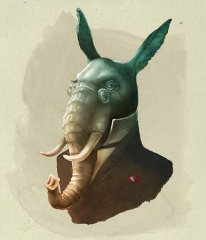Reflections on Republocrat: The Trouble with Capitalism
Capitalism—should Christians endorse it with enthusiasm? Accept it with reservations? Utterly reject it? Just ignore it? Questions like these are at the heart of the fourth chapter of Carl Trueman’s book Repuplocrat: Confessions of a Liberal Conservative.
Overview
This chapter (“Living Life to the Max”) is book’s weakest so far. Key terms shift in meaning, the problems under attack lack the kind of concrete examples found in other chapters, claims seem contradictory at times, and the thesis is less clear.
The thrust of the chapter seems to be that although capitalism is the best economic system the world has yet seen, and we have no idea what would be better, it’s attendant ills are such that we need to make sure we’re sufficiently critical of it.


Discussion